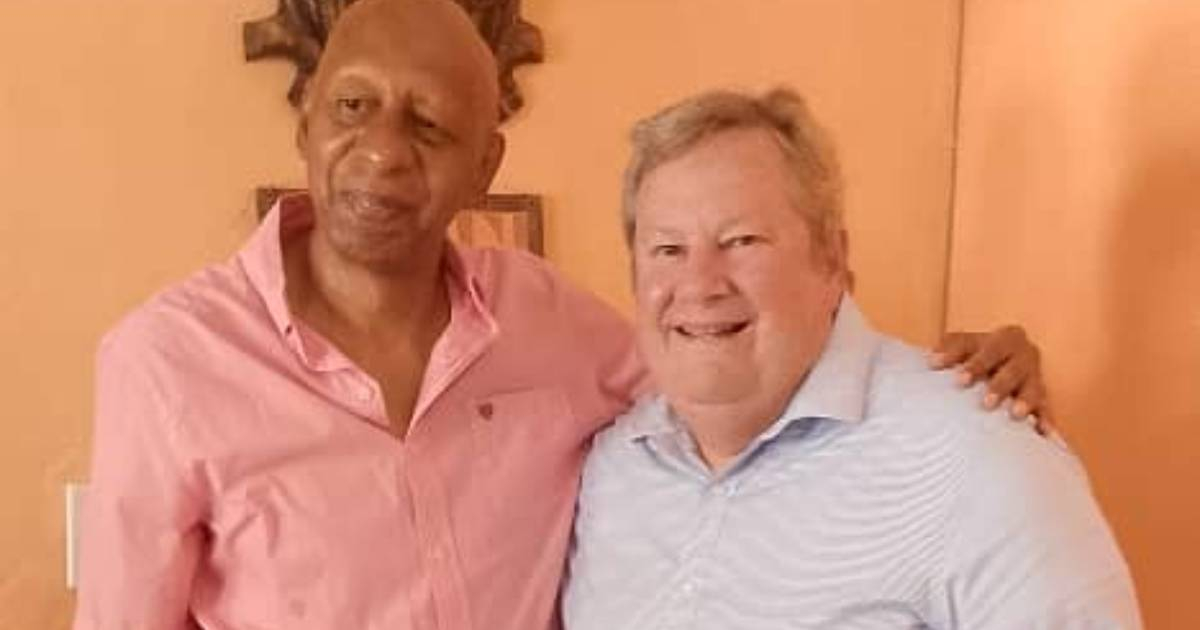
Related videos:
The Chargé d'Affaires of the United States Embassy in Cuba, Michael “Mike” Hammer, visited the headquarters of the United Antitotalitarian Forum (FANTU) in the city of Santa Clara this Monday, where he held a meeting with opposition leader Guillermo “Coco” Fariñas.
According to an official statement from FANTU, Hammer was accompanied by Leslie Núñez Goodman, Head of Public Diplomacy at the U.S. Embassy in Havana. The meeting, described as a "open and constructive exchange of opinions", took place at 2:50 p.m. at the national headquarters of the opposition organization.
During the dialogue, Fariñas, on behalf of the General, National, and International Councils of FANTU, presented to the diplomats the three avenues that the party considers viable to address what he termed "the disaster" caused by the Cuban regime: a widespread social uprising, a military overthrow by officers without repressive backgrounds, or a naval and air blockade that would force the current "neoraulist military junta" to relinquish power.
Likewise, the leaders of FANTU explained that a significant portion of their political work focuses on anti-government campaigning in the long lines to acquire food, medicines, and other basic goods. They also described to Hammer and Núñez Goodman the critical situation of political prisoners in Cuban prisons, a result of over six decades of communist rule.
Before concluding the meeting, Fariñas urged the diplomatic representatives to convey his regards to the U.S. Secretary of State, Marco Rubio, and expressed his confidence that negotiations would not be conducted “behind the backs of the internal opposition and the anti-Castro exile.” He also requested that punitive measures against the Cuban regime continue to be enforced.
After the meeting, the diplomat posted a message on his social media declaring that "it was an honor to meet in Santa Clara yesterday with Guillermo ‘Coco’ Fariñas, leader of FANTU and Sakharov Prize winner. We discussed his long history of advocating for human rights in Cuba."
A history of engagement with the Cuban opposition
Since his arrival in Havana in November 2024, Mike Hammer has held several meetings with Cuban dissidents and activists, in an effort to reinforce his country's commitment to promoting human rights on the island.
Among the figures he has met with are Berta Soler, leader of the Damas de Blanco; Martha Beatriz Roque, a renowned dissident and economist; and José Daniel Ferrer, leader of the Unión Patriótica de Cuba (UNPACU), with whom he discussed the political and social situation of the country at the organization's headquarters in Santiago de Cuba.
Hammer has also engaged in dialogue with the intellectual Alina Bárbara López Hernández, discussing the situation of political prisoners and the need to establish a respectful dialogue to address the social and political challenges in Cuba.
These visits reflect Washington's interest in maintaining an open dialogue with Cuban civil society and in supporting those who defend human rights and democracy on the island.
Guillermo Fariñas, trained as a psychologist, has been a political prisoner three times and in 2010 received the Sakharov Prize for Freedom of Thought awarded by the European Parliament, establishing himself as one of the most prominent figures of the Cuban opposition.
Frequently Asked Questions about Mike Hammer's Visit and the Opposition Situation in Cuba
Who is Guillermo "Coco" Fariñas and what is his role in the Cuban opposition?
Guillermo "Coco" Fariñas is a renowned Cuban opposition figure and leader of the United Antitotalitarian Forum (FANTU). Fariñas has been a prominent human rights activist in Cuba, has been imprisoned on several occasions, and is one of the most critical voices against the Cuban regime. In 2010, he received the Sakharov Prize for Freedom of Thought, awarded by the European Parliament.
What was the purpose of Mike Hammer's visit to Fariñas in Santa Clara?
The purpose of the visit was to hold a meeting with Fariñas to discuss the political and social situation in Cuba. During the meeting, possible ways to address what FANTU calls "the disaster" caused by the Cuban regime were discussed, as well as the critical situation of political prisoners in the country.
What is the U.S. government's stance on the human rights situation in Cuba?
The United States government takes a critical stance towards the Cuban regime and advocates for the defense of human rights on the island. Through its diplomatic representation, the United States has expressed its commitment to supporting Cuban dissidents and has called for the release of all political prisoners, condemning arbitrary detentions and the regime's repression.
How has the Cuban regime reacted to Mike Hammer's visits to dissidents?
The Cuban regime has criticized Mike Hammer's visits to opposition leaders, accusing him of meddling in the country's internal affairs. The Cuban government has labeled Hammer's actions as an "anticuban agenda" and has sought to portray the diplomatic meetings as a conspiracy to destabilize the regime.
Filed under: